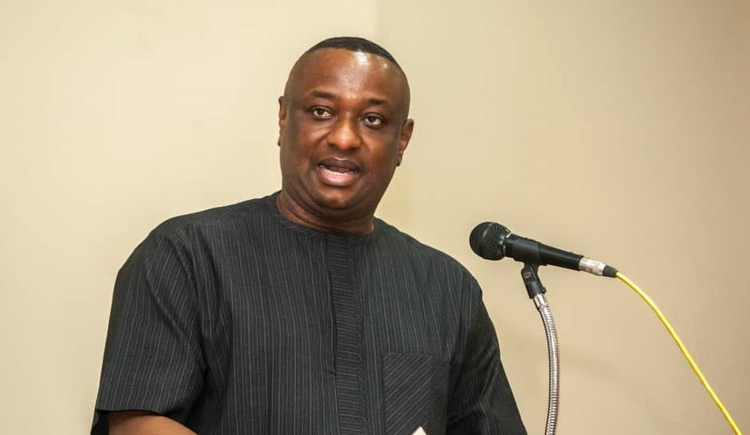Stakeholders in Nigeria’s aviation sector have said that for the nation’s economy to continue recording growth, the challenges in its aviation sector must be addressed because of all the sectors of the economy, the aviation sector is very strategic, critical and plays a crucial responsibility to the economy.
Some of the challenges they highlighted include flight delays and cancellations, a shortage of serviceable aircraft, multiple destinations for foreign carriers, taxation, and dollar scarcity. Others are airport land encroachment, rising airfares, foreign airlines blocked funds, high foreign airline Airfares, labour unrest, touting, and hawking.
According to them, the challenges mentioned above have so far retarded the growth of the sector, but experts believe the challenges are surmountable with the right human resources and management.
However, to surmount the challenges, many aviation practitioners argued that the sector, being technical, required a personality with industry knowledge to supervise and hit the ground running.
They argued that Festus Keyamo, appointed substantive minister in 2023, has taken some audacious steps to reposition the sector.
For instance, they mentioned tackling some private jet operators who illegally converted their equipment to charter, thereby robbing the federal government of its deserved revenues while also preventing the approved chartered operators from rendering their services to their customers as stipulated.
Apart from this, they also emphasised that the minister was creating a comfortable working environment for operators, especially airlines, by supporting their growth and expansion and, among other things, working out easy leasing agreements for them.
Commenting on the minister’s performance since his assumption of office, the chief executive officer of West Link Airlines, Capt. Ibrahim Mshelia said Keyamo had taken bold steps to stabilise the industry despite not being an aviation professional.
According to Mshelia, Keyamo’s recent establishment of a Ministerial Taskforce on Illegal Air Charter Operations and Related Matters revealed some huge but obvious gaps in Nigeria’s civil aviation industry.
The committee’s preliminary report, released on July 26, 2024, exposed the use of private foreign-registered aircraft for illegal charter operations by some private jet owners in the country.
The committee also identified high-net-worth individuals in the scandal, which consistently questioned the Private Non-Commercial Flight (PNCF) ‘s adherence to regulations.
Besides, Mshelia explained that Keyamo recently wrote to the United Kingdom Secretary of State for Transport concerning Heathrow Airport, London, for Air Peace. He described this step as another good move by the minister, pointing out that the United Kingdom (UK), with two of its carriers, British Airways and Virgin Atlantic Airways, operating in two cities in Nigeria, had failed over the years to reciprocate the Bilateral Air Service Agreement (BASA) arrangement the country had with any Nigerian airlines going to the UK. It’s currently preventing unfettered access to air peace in European countries.
The West Link Airline CEO emphasised that while airlines from smaller and less competitive countries like Rwandair, for instance, had continued to operate directly to Heathrow Terminal Four and connect wider destinations, the reverse was the case with Nigeria, where its airlines on international routes had been treated like second fiddle by the government of the UK.
Mshelia pointed out that the minister’s decision to write to the Secretary of State for Transport in the United Kingdom would further garner more respect for Nigeria’s civil aviation industry among the community of nations.
The general secretary of Aviation Round Table (ART), Olumide Ohunayo, said that Keyamo had been able to put “Nigeria first” in all his dealings so far. According to him, apart from designating Nigerian carriers on international destinations, the minister had also protected the airlines on the same routes, unlike in the past, when the government abandoned such Nigerian operators to their fate.
He, however, suggested that Keyamo could encourage local and foreign investors to partner with Nigerian airlines by creating an enabling working environment for investments to thrive. Also, Ohunayo advised the minister to reduce his interference in the Nigeria Civil Aviation Authority (NCAA), limit his travel, and act according to the ICAO recommendations and standards.
Aviation expert Frank Oruye brought a more transparent approach to the ministry’s dealings. Oruye specifically mentioned the speed at which the minister addressed the controversial and behind-the-scenes deals of the botched Nigeria Air debacle, which was recently cancelled by the Federal High Court sitting in Lagos, as one such example of transparency and fervent steps.
Besides he also commended the minister for the progress made so far with the United Arab Emirates (UAE) and the planned return of Emirates Airlines to Nigeria.
However, Oruye advised Keyamo not to follow in the footsteps of his predecessors, who blatantly refused to appoint a Board of Directors for the aviation agencies in contravention of the Acts setting them up. He posited that appointing agency board boards would further showcase and promote his transparent character.
Oruye appealed that just as the minister facilitated the payment of 45-month minimum wage arrears owed to the staff of the Nigerian Meteorological Agency (NiMet), he also needed to address the challenges facing the defunct Nigeria Airways staff and pensioners, who he decried are still owed part-payment of their severance packages 21 years after the federal government liquidated the airline.





